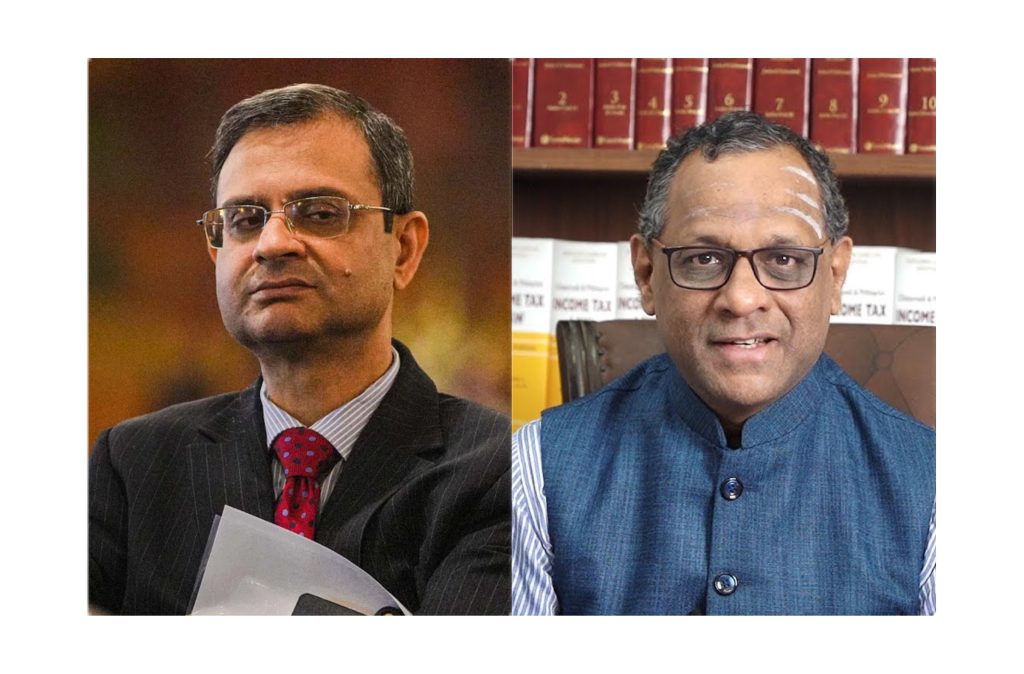Is a rift between 2 top govt officials the reason for the online gaming GST mess?
Prepend to the content

The continued chaos over both the retrospective dues of over Rs. 1.5 lakh crore Goods and Services Tax (GST) from the online gaming, casinos and horse racing on the face value of every bet and implementation of a revised mechanism from 1st October, 2023 of taxing the initial deposits made on online gaming websites or chips purchased in casinos has caused considerable consternation within the industry, while increasing legal troubles for the government.
The Directorate General of Goods and Services Tax Intelligence (DGGI) has so far issued showcause notices for retrospective tax dues for the period 2017-2022 issued to over 40 online real money gaming totaling to a staggering amount of over Rs. 1.5 lakh crores, plus interest and penalty, based on the interpretation that the platforms are offering gambling and betting services, and hence every bet or entry fee on the platform is subject to 28% tax.
Although several High Courts have rejected the proposition that online skill-based gaming platforms amount to gambling and betting, DGGI has still persisted with showcause notices on the oft-rejected premise. Appealing against quashing of the Rs. 21,000 crore showcause notice to Gameskraft Technologies by the Karnataka High Court, DGGI filed a Special Leave Petition (SLP) in the Supreme Court challenging the order. On 6th September, 2023, the Supreme Court issued a stay against the Karnataka High Court’s judgment and is now expected to hear the matter finally in the next few months and decide whether online gaming companies are liable to pay retrospective tax.
DGGI’s issuance of showcause notices for retrospective dues and persistence to aggressively pursue dues for the past five years from online gaming companies based on an interpretation of law that has been repeatedly rejected by courts and has led to pending litigation in several High Courts across the country, has however not found favour within all sections of the top echelons of the central government.
Senior Advocate Harish Salve while representing casino operator Delta Corp in the Bombay High Court (Goa Bench) earlier this week alluded to this by submitting that Revenue Secretary Sanjay Malhotra had informally told some online gaming companies that if they do not go to court to challenge the prospective application of 28% GST on deposits made on online money gaming platforms from 1st October, 2023, and wait for the GST Council to review the decision in six months, he would make the issue of retrospective taxation go away.
Malhotra has in fact has conducted several informal meetings with stakeholders where he has reportedly assured, off the record that the retrospective tax notices are not serious, indicating the government’s tacit admission that they are based on a weak legal footing.
However, Malhotra’s purported assurances and comments are at odds with the position taken by Additional Solicitor General of India (ASG) N. Venkatraman, who is the revenue department’s key lawyer handling all high-profile tax and anti-trust litigations and is known to have the ear of Finance Minister Nirmala Sitharaman and Prime Minister Narendra Modi.
Venkatraman has aggressively pursued the tax demand against online rummy operator Gameskraft Technologies on the argument that rummy when played with stakes amounts to gambling, betting and wagering. Despite this contention being unequivocally rejected by the Karnataka High Court, DGGI based on legal advice by the ASG decided to go ahead with a SLP in the Supreme Court. Venkatraman in fact vociferously argued against the Karnataka High Court judgment before a 3-judge apex court bench led by CJI DY Chandrachud and has urged the court to conclude final hearing in the matter at the earliest.
Venkatraman also drafted the prospective amendments to the GST laws, and his advice and role in the whole matter has also found mention in the 50th and 51st GST Council meetings held in July-August this year.
The Additional Solicitor General’s steadfast and aggressive approach against online real money gaming companies is at odds with Revenue Secretary Malhotra’s more pragmatic approach, aimed at accommodating the concerns of the sector, and ensuring that the industry does not shut down.
However, gaming companies are on the tenterhooks due to the seemingly contradictory approach by the two top ranking officials of the government, and are unsure whose stand would prevail, especially on the issue of applicability of retrospective taxation on face value of bets. Hopefully, the Finance Minister and Prime Minister would be able to settle the difference of opinion between the two officials, at least on the issue of retrospective taxation, which is based on a tenuous interpretation of the law, and provide much-needed reprieve and clarity to the online gaming industry.
The post Is a rift between 2 top govt officials the reason for the online gaming GST mess? appeared first on G2G News.



